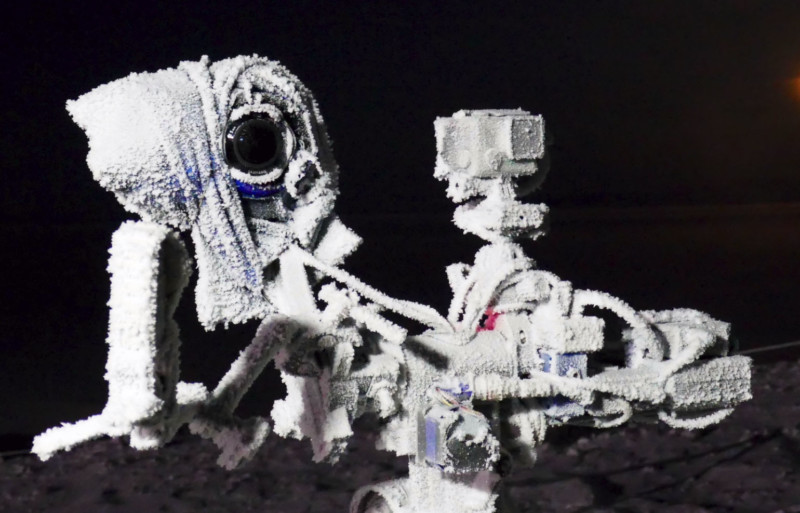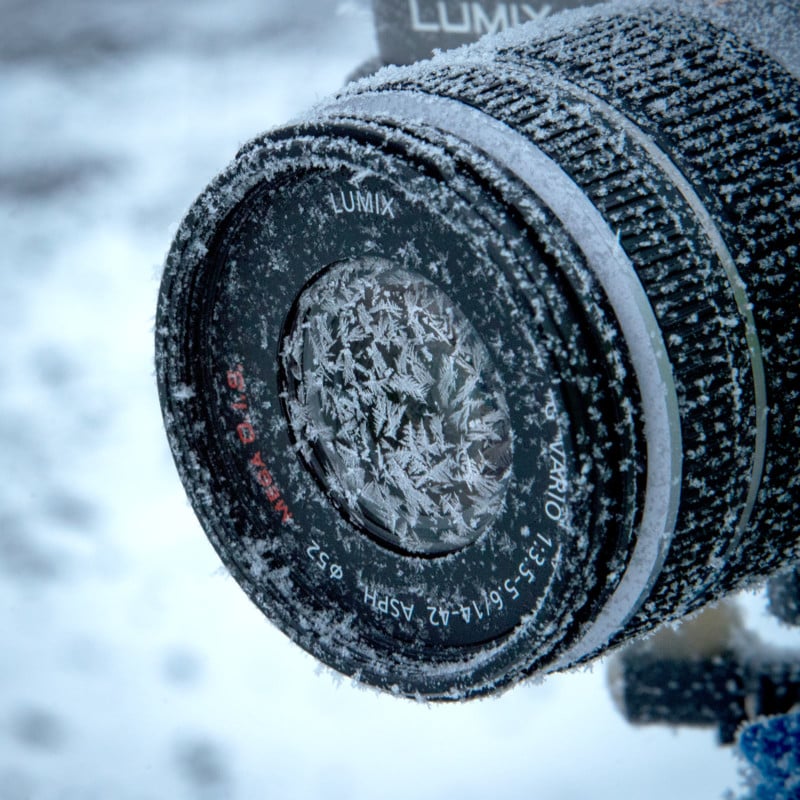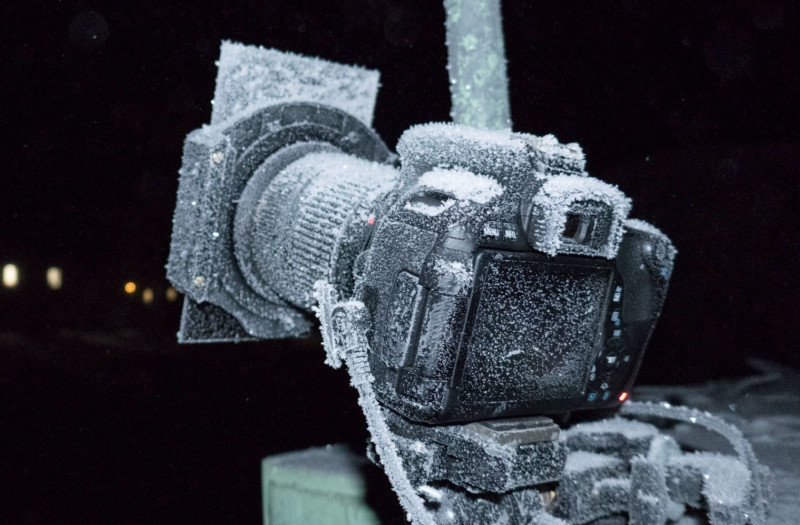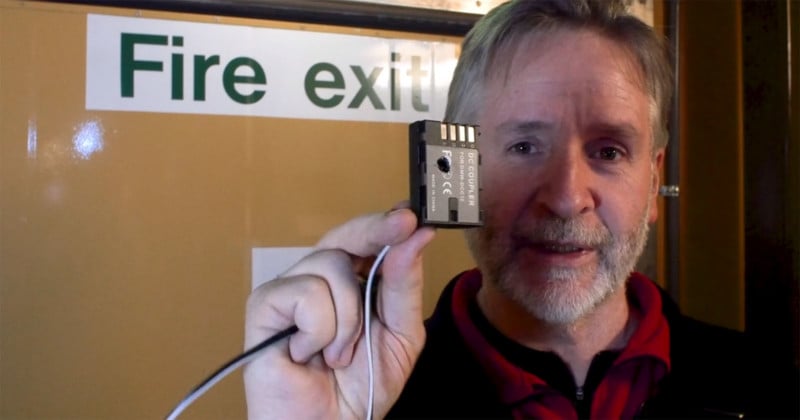How to Use Your Camera In the Coldest Places on Earth
When you take your camera to some of the coldest places on Earth, you’ll face a unique set of challenges that most photographers never have to worry about. Here’s an interesting 9-minute video in which filmmaker and photographer Anthony Powell shares some of his top tips for shooting in the extreme cold.
Powell has been working in Antarctica for many years and is the creator of the award-winning movie Antarctica: A Year On Ice. His footage has also appeared in many movies and TV shows, including the BBC’s Frozen Planet.
And Powell knows a thing or two about cold temperatures, as Antarctica has the coldest climate on Earth. Its lowest temperature ever recorded was −89.2 °C (−128.6 °F), and the average interior temperature is −57 °C (−70.6 °F).
When shooting in these conditions, your camera gear can end up looking like this after a very short time:



The temperatures are so cold that after being exposed to the elements for a very short time, a standard power adapter cable will become frozen solid and so brittle that you can easily snap it by bending it.
A lot of the standard equipment used by photographers begin facing issues once temperatures drop to a certain level. For example, fluid heads are great for smooth movements while shooting video, but in Antarctica, the fluid freezes and you’re left with the equivalent of a “brick” attached to your camera, Powell says.
Even the lubricant that helps the shutter mechanism in your camera open and close smoothly starts to get sluggish and reduce the lifespan of the shutter.
Therefore, Powell prefers natural rubber cables and solid metal, mechanical accessories that can continue performing in the extreme cold.
One interesting hack Powell uses is his custom-made battery, which is actually a faux battery that’s connected to a larger battery.

When batteries get cold, their voltage drops, and this fools cameras into believing that the battery has been drained. Powell overcame this problem by creating his own battery system: his battery shell is connected to a DC-to-DC converter and a 12-volt battery. This way, even if the 12V battery drops in voltage, it’ll still be able to provide at least the 7.5V his camera needs to stay on.
via PetaPixel https://petapixel.com
May 5, 2018 at 10:34PM
Powell has been working in Antarctica for many years and is the creator of the award-winning movie Antarctica: A Year On Ice. His footage has also appeared in many movies and TV shows, including the BBC’s Frozen Planet.
And Powell knows a thing or two about cold temperatures, as Antarctica has the coldest climate on Earth. Its lowest temperature ever recorded was −89.2 °C (−128.6 °F), and the average interior temperature is −57 °C (−70.6 °F).
When shooting in these conditions, your camera gear can end up looking like this after a very short time:
The temperatures are so cold that after being exposed to the elements for a very short time, a standard power adapter cable will become frozen solid and so brittle that you can easily snap it by bending it.
A lot of the standard equipment used by photographers begin facing issues once temperatures drop to a certain level. For example, fluid heads are great for smooth movements while shooting video, but in Antarctica, the fluid freezes and you’re left with the equivalent of a “brick” attached to your camera, Powell says.
Even the lubricant that helps the shutter mechanism in your camera open and close smoothly starts to get sluggish and reduce the lifespan of the shutter.
Therefore, Powell prefers natural rubber cables and solid metal, mechanical accessories that can continue performing in the extreme cold.
One interesting hack Powell uses is his custom-made battery, which is actually a faux battery that’s connected to a larger battery.
When batteries get cold, their voltage drops, and this fools cameras into believing that the battery has been drained. Powell overcame this problem by creating his own battery system: his battery shell is connected to a DC-to-DC converter and a 12-volt battery. This way, even if the 12V battery drops in voltage, it’ll still be able to provide at least the 7.5V his camera needs to stay on.
via PetaPixel https://petapixel.com
May 5, 2018 at 10:34PM
.png)

No comments:
Post a Comment